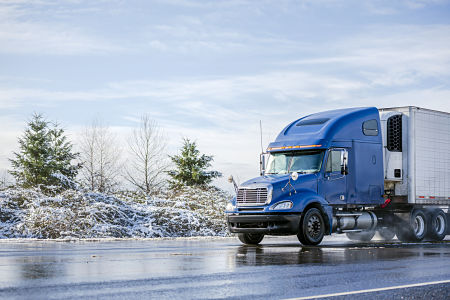ELD hard deadline fast approaching
By Dec. 16, every truck in America is expected to have an electronic logging device (ELD) in its cab to comply with a mandate from the Federal Motor Carrier Safety Administration (FMCSA).
That means carriers using last-generation automatic onboard recording devices (AOBRDs) will have transitioned to the newer ELDs.
But Ken Evans, CEO of Konexial, an ELD solutions company, says that many carriers are still putting off making the transition to the last minute.
Evans told freightwaves.com that carriers that continue running AOBRDs do not realize the time it takes for drivers to get accustomed to operating an entirely new device.
“Fleets might also have problems with the hardware, which means they will have to switch hardware as well. The aspect of human behavior is important to note – as learning a new piece of software and working around with the hours of service rules is a big change for people,” he said.
FMCSA has repeatedly stated that there will be no soft enforcement of regulations past the December 16 deadline. “The problem is that most of these people don’t follow the news as closely as they should. And so, I believe that it’s going to continue to spill over after the deadline,” said Evans.
“Where I see people get serious about it is when they get pulled over for the first time by an officer who actually enforces the hours of service rule or when they face a back-office audit at the carrier’s office,” he told freightwaves.com.
Fleets transitioning to the ELDs from AOBRDs will have to be picky with their new providers, as choosing poorly rated ELD providers might lead them to nightmarish diagnostic issues and hardware malfunctions – situations that do not frequently happen within the AOBRD ecosystem.
“Loss of connectivity or issues with the devices that need repair or help to be put back to full compliance is an uneasy situation to be in, but fleets and drivers will have to learn that process to ensure they are compliant at all times,” said Walter Kutschal, compliance product manager at Platform Science, an enterprise IoT telematics platform. “On the other end, ELD companies need to proactively monitor and identify issues before their customers get impacted.”
There are over 600 companies that sell self-certified ELD solutions, and that it is vital for fleets to identify the good ones to ensure they gain the best value for their money. Review sites like ELD Ratings are run by neutral platforms that have honest reviews written by truckers who use a variety of ELDs from different providers.
Most over-the-road motor carriers have been required to use ELDs instead of paper logbooks to automatically record drivers’ hours-of-service information since December 2017. However, FMCSA has allowed carriers that had installed AOBRDs to continue using them for two years beyond the deadline, according to a report in Transport Topics.
“People are now resigned to the fact that the regulation is going to stick,” said Sid Nair, senior director of transport and compliance of Teletrac Navman.
Fleet operators that still need to update their AOBRDs and companies dissatisfied with the initial purchase they made to comply with the 2017 mandate are facing many of the same challenges, Nair said, including training drivers on how to use the ELD and ensuring that back-office workers know how to transfer logs.
The pace of conversion has been picking up since the beginning of the summer and continues to increase, vendors said.
More than 80 percent of Trimble Transportation’s customers are in the process of migrating, said Alicia Jarosh, vice president of customer experience. Most are aiming to be finished by mid-to-late November at the latest, she said.
J.J. Keller & Associates said that it had transitioned 90 percent of its AOBRD customers to ELDs.
Aspects of the process can be more time-consuming than might be expected, vendors and carriers said. Technology suppliers warned that a rush near the deadline could result in delays.
“The time to transition is now,” said Mike Ahart, vice president of regulatory affairs for Omnitracs. “Waiting until later in the year may put you in a long line of motor carriers and drivers who need assistance. ELD providers will be working with their customers on a first-come, first-served basis. However, there may be those who have been identified as ‘strategic customers’ who get priority, causing everyone else to fall further behind in the line.”






